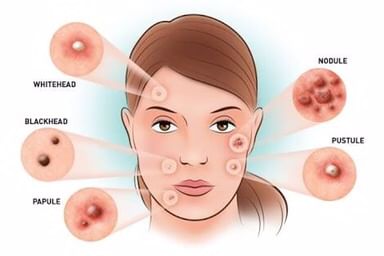Acne Treatment
Common skin condition (acne)
Most people develop acne - the most common skin condition - to some degree, but it primarily affects teenagers undergoing hormonal changes.
Acne may be
1) Mild (few, occasional pimples)
2) Moderate (inflammatory papules)
3) Severe (nodules and cysts)
Treatment depends on the severity of the condition.
What causes acne?
Acne is primarily a hormonal condition driven by male or ‘androgenic’ hormones, which typically become active during the teenage years. Sensitivity to such hormones, combined with bacteria on the skin, and fatty acids within oil glands, cause acne. Common sites for acne are the face, chest, shoulders, and back -- the sites of oil glands.
Acne lesions include whiteheads, blackheads, small bumps, and nodules and cysts.
How can acne be prevented?
To prevent acne and reduce its damage to your skin, follow these tips:
- Choose a cleanser specially formulated for acne. These products often contain salicylic acid or benzoyl peroxide, which help to clear acne sores.
- Clean your face gently, as trauma to the acne breakouts may worsen the acne or cause scarring. When washing your face, use your hands or cotton pads, as any terrycloth or other scrubbing material may cause acne sores to rupture.
- If you need to use a moisturizer, use only light, noncomedogenic moisturizers, which do not aggravate acne.
- If you are a woman, use an oil-free foundation. Heavy makeup or other cosmetic products that block pores may cause a flare-up of acne.



+1.svg)
